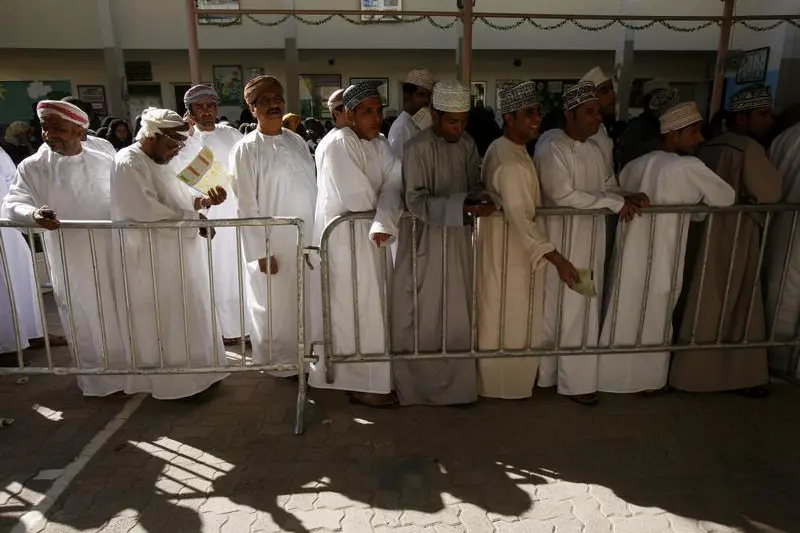PHOTO
Muscat: Companies committed to an Omanisation staffing policy will be able to fast-track visas for expat workers, under a new government scheme.
More than 300 private sector companies already meet the criteria to receive the new priority service, named the Work Environment Measurement Card Al Majeedah, with all its benefits, including receiving permits for expat workers within 24 hours, according to the Chairman of Oman Chamber of Commerce.
The initiative is part of Tanfeedh’s programme which aims to diversify the economy and enhance the attractiveness of the private sector to Omani citizens.
Speaking exclusively with Times of Oman, His Excellency Qais Al Yosuf, Chairman of the Oman Chamber of Commerce, said, “The benefits of the Majeedah card provide good incentives for companies to Omanise and become more appealing to the Omani labour force.”
“There are already 300 companies at Grade One or above that fulfil the criteria required for these benefits, and we hope to expand it to smaller companies in the future,” added Al Yosuf.
On Monday, March 25 HE Al Yosuf,met with companies of Grade One and above to present to them the full framework of the Majeedah card.
Tanfeedh initiative
The committee entrusted to develop and follow up implementation of the Tanfeedh initiative was also present to explain the benefits of the card.
Zaher Al Shamsi, Director of Companies of Excellence at the Ministry of Manpower, said, “The Majeedah card used to have two incentives related to the speed of handling paperwork. Now, we have added eight new benefits. One of them is to approve requests for 20 or fewer employees without transferring the request to the employment department.
“This means that the requests will be approved automatically at once. At most, you will go into the office and 5-10 minutes later, you will have your approval for employee permits.”
“You will also be able to have under 50 temporary expatriate employees without having to bring in the contract , which used to be the case.”
Al Shamsi explained that, as long as their Omanisation rate remained above requirements, a company was free to replace employees without having to present an Omanisation plan. In addition, the limit on the number of managers allowed was being completely removed, leaving business free to appoint as many as they wish.
Furthermore, according to Al Shamsi, expat permits will be allowed even if a previous request for permits has not been exhausted.
Simon Karam Head of the initiative said, “It used to be that if you requested 200 employees and only brought in 150, you would not be able to request more unless you’ve filled out these 200 positions. Now, this limitation has been removed.”
Simon Karam added that these guidelines were presented after six weeks of planning. “We know that banks and the oil and gas sector are more attractive to Omanis. The question was why, and how could we make it so that other sectors can be just as attractive.?This is where this plan comes from. Currently, it is only for Grade One companies, but we are working on other guidelines for Grade Two and Grade Three companies.”
The Enhancement of Attractiveness of The Private Sector initiative also aims to “provide adequate housing in areas far from the workers’ residence, review the retirement laws for private sector employees, set up an unemployment fund, and reorganise, improve, and activate the corporate card (green card) to give encouraging advantages to companies and institutions that comply with the criteria,” according to Karam.
The basic conditions presented for these incentives were explained by Shahswar al Balushi, Head of the Tanfeedh labour lab. “The company must be Grade One and above, they must achieve 60% of the Omanisation level for its sector, must Omanise the position of the Human Resource Manager or Administrative Manager, and must comply with labour law and Ministerial regulations and decisions.”
Beyond that, the company must be able to achieve 60 out of 100 points on an incentive scale, which includes 12 points for a comprehensive Employee Policy Manual, 10 points for a 50 per cent and above Omanisation rate among middle and upper management, and 12 per cent for compliance regarding occupational health and safety procedures. There are also bonus points for employing persons with special needs, women, applying medical insurance for all employees, the availability of a trade union, and providing a nursery for parents.
© Muscat Media Group Provided by SyndiGate Media Inc. (Syndigate.info).
Disclaimer: The content of this article is syndicated or provided to this website from an external third party provider. We are not responsible for, and do not control, such external websites, entities, applications or media publishers. The body of the text is provided on an “as is” and “as available” basis and has not been edited in any way. Neither we nor our affiliates guarantee the accuracy of or endorse the views or opinions expressed in this article. Read our full disclaimer policy here.





















